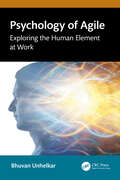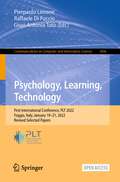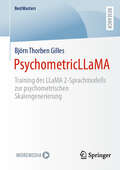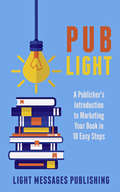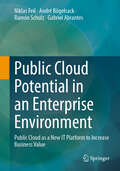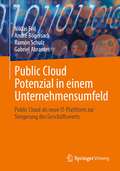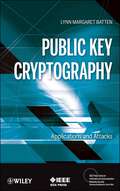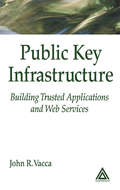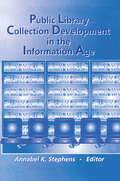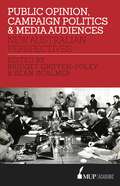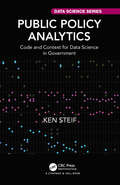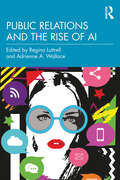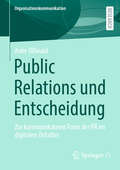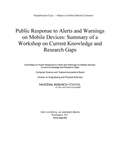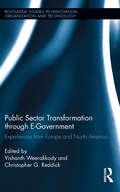- Table View
- List View
Psychology and Law in Europe: When West Meets East
by Pär Anders Granhag, Ray Bull, Alla Shaboltas and Elena DozortsevaOffering carefully curated articles from the European Association of Psychology and Law (EAPL), this book features chapters from a truly international group of scholars. This text is the first of its kind to offer insights into current developments in psychology and law in Russia. The field of psychology and law has a very long and strong tradition in Russia, but very little is known, as Russian scholars rarely publish their works in English. The volume also contains state-of-the-art chapters on topics at the very core of psychology and law, including offender profiling, lie detection, crime linking, false memories, and witness interviewing. Features Provides rare insight into Russian history of forensic and criminal psychology Covers core topics in the discipline Offers international scope from a diverse array of contributors Psychology and Law in Europe: When West Meets East is a text of interest for students of psychology, law, or criminal justice, as well as scholars and practitioners in the field. This text offers a window into global advances in psychology and law.
Psychology of Agile: Exploring the Human Element at Work
by Bhuvan UnhelkarAgile is a mindset and a culture that has evolved beyond software development to encompass all forms of project management, business organizations, defense, and society. In today’s fast- paced and ever- changing world, adopting an Agile approach is essential for organizations to thrive and maintain competitiveness. This book aims to extend the concept of Agility beyond the four declarations of the Manifesto and apply it to various projects, organizations, and even society. The book delves into the intricacies of Agile and highlights its significance in modern workplaces. It emphasizes that Agile is more than just a set of tools and techniques; it is a way of thinking and a culture that requires a deep understanding of psychology and sociology. Key topics discussed: Agility as a leadership characteristic and the meta- mind of Agile • Agile mind- map beyond the manifesto and methods Psychological frameworks (Maslow, TA, MBTI, Left- Right, Slow- Fast) relevant to Agile work and psychosocial games at work Psychological development and Composite Agile Method and Strategy (CAMS) Agile organizational structures and behaviors Agile Transformations in the Digital Age This book is valuable for Agile coaches, mentors, and Scrum Masters looking for more comprehensive answers than what an Agile framework can provide. It is also helpful for business leaders, stakeholders, and product owners who need to deal with ambiguous or unclear issues, as well as project managers and team leaders who already have experience in Agile but feel like something is missing. Additionally, HR professionals and trainers involved in Agile transformation can benefit from this book.
Psychology of Entertainment: The Psychology Of Its Appeal (Routledge Communication Series)
by Jennings Bryant Peter VordererAs entertainment becomes a trillion-dollar-a-year industry worldwide, as our modern era increasingly lives up to its label of the "entertainment age," and as economists begin to recognize that entertainment has become the driving force of the new world economy, it is safe to say that scholars are beginning to take entertainment seriously. The scholarly spin on entertainment has been manifested in traditional ways, as well as innovative ones. Representing the current state of theory and research, Psychology of Entertainment promises to be the most comprehensive and up-to-date volume on entertainment. It serves to define the new area of study and provides a theoretical spin for future work in the area.Divided into three basic parts, this book:*addresses the fundamental mechanisms and processes involved in orienting to and selecting entertainment fare, as well as receiving and processing it;*explores the mechanisms and processes by which we are entertained by the media messages we select and receive; and*provides an opportunity for the application of well-established as well as emerging psychological and psychobiological theories to be applied to the study of entertainment in ways that seldom have been utilized previously.Psychology of Entertainment will appeal to scholars, researchers, and graduate students in media studies and mass communication, psychology, marketing, and other areas contributing to the entertainment studies area.
Psychology of the Digital Age
by John SulerBased on two decades of participant-observation field research in diverse online environments, this engaging book offers insights for improving lifestyles and enhancing wellbeing in the digital age. John R. Suler, a founder of the field of cyberpsychology, explains its fundamental principles across a wide variety of topics, including online identity management, disinhibition, communication via text and photographs, intimacy and misunderstandings in online relationships, conflicting attitudes toward social media, addiction, deviant behavior, virtual reality, artificial intelligence, and media overload. He provides a new framework, the 'Eight Dimensions of Cyberpsychology Architecture', which researchers, students, and general readers interested in cyberpsychology can apply as a valuable tool for creating and understanding different digital realms. Psychology of the Digital Age focuses on the individual, shedding new light on our conscious as well as subconscious reactions to online experiences and our intrinsic human need to self-actualize.
Psychology, Learning, Technology: First International Conference, PLT 2022, Foggia, Italy, January 19–21, 2022, Revised Selected Papers (Communications in Computer and Information Science #1606)
by Pierpaolo Limone Raffaele Di Fuccio Giusi Antonia TotoThis open access book constitutes the refereed proceedings of 1st International Workshop on Psychology, Learning, Technology, PLT 2022, Foggia, Italy, during January 2022. The 8 full papers presented here were carefully reviewed and selected from 23 submissions. In addition, one invited paper is also included. Psychology, Learning, ad Technology Conference (PLT2022) aims to explore learning paths that incorporate digital technologies in innovative and transformative ways and the improvement of the psychological and relational life. The conference includes topics about the methodology of application of the ICT tools in psychology and education: from blended learning to the application of artificial intelligence in education; from the teaching, learning, and assessment strategies and practices to the new frontiers on Human-Computer Interaction.
Psychology, Learning, Technology: Second International Conference, PLT 2022, Foggia, Italy, November 17–18, 2022, Revised Selected Papers (Communications in Computer and Information Science #2089)
by Raffaele Di Fuccio Giusi Antonia TotoThis book constitutes the refereed proceedings of Second International Workshop on Psychology, Learning, Technology, PLT 2022, which took place in Foggia, Italy, in November 2022. The 14 full papers were carefully reviewed and selected from 42 submissions. The papers were organized in topical sections as follows: Digital psychology and digital setting; advances in technology enhanced learning and teaching; and bilingualism and second language learning.
PsychometricLLaMA: Training des LLaMA 2-Sprachmodells zur psychometrischen Skalengenerierung (BestMasters)
by Björn Thorben GillesDie rasante Entwicklung generativer Sprachmodelle eröffnet neue Möglichkeiten der psychologischen Skalenentwicklung. Diese prä-registrierte Arbeit untersucht den Einsatz von Sprachmodellen zur automatischen Generierung von Likert-Items, aufbauend auf bisherigen Ansätzen. Ein neuer Datensatz wurde durch eine systematische Literaturrecherche erstellt und mit bestehenden Quellen kombiniert, um das LLaMA 2-Sprachmodell mittels Low-Rank Adaption zu trainieren. Das Modell generiert auf Basis einer Definition psychologische Items mit Anpassungsmöglichkeiten für Schwierigkeit und Kreativität. Zur Überprüfung der psychometrischen Güte wurden Items zu sechs Konstrukten generiert und online mit N = 200 Personen erhoben. Die Ergebnisse zeigten vielversprechende psychometrische Kennwerte: Die meisten Items konnten eine gute interne Konsistenz und hohe Korrelationen mit den Originalskalen aufweisen. Allerdings war die Anpassung der Item-Schwierigkeit nicht erfolgreich. Unterschiede in Antwortverteilung und Interkorrelationen zwischen KI- und Originalskalen wurden festgestellt. Insgesamt leistet diese Arbeit einen bedeutenden Beitrag zur psychologischen Fragebogenkonstruktion durch das Fine-Tuning eines KI-Modells zur Generierung reliabler und valider Items.
Pub Light: A Publisher's Introduction to Selling Your Book in 10 Easy Steps
by Elizabeth Turnbull Kaitlin AlbersPub Light provides a concise, comprehensive guide to assist authors in the daunting task of properly marketing their books. We've compiled the best tips and tricks in the industry from marketing experts, independent authors, and professional bloggers. In 10 easy steps, we reveal the best ways to leverage your audience, from utilizing social media, networking with people you know, getting your book reviewed, and more!
Pubblicare da soli il proprio libro sul mercato globale
by Jason Matthews Erica Roggio e Loredana MarmoraleHai scritto un libro? Vuoi vendere su Amazon, Apple, Google e altri importanti rivenditori? Risparmia tempo e denaro vendendo e-book online con questa semplice guida all'auto-pubblicazione. Risolvi i tuoi dubbi su come preparare il tuo libro per caricarlo sulle piattaforme dei principali rivenditori. Il manuale, che include consigli per far emergere il tuo libro rispetto a tanti altri, è stato scritto da Jason Matthews, esperto di auto-pubblicazione e autore di numerose opere letterarie di narrativa e saggistica. I suoi libri sono stati tradotti in 8 lingue e i suoi corsi video sono stati seguiti da studenti di oltre 123 paesi. Preparati a raggiungere velocemente gli obiettivi di pubblicazione. Imparerai a: •formattare il tuo libro per i principali rivenditori •convertirlo in ePub in modo che sia visualizzato correttamente su tablet, smartphone e Kindle •disegnare una copertina accattivante •vendere attraverso Amazon, Apple, Google Play, Barnes & Noble, Smashwords, Kobo e altre piattaforme •utilizzare i social media in maniera intelligente (Facebook, Twitter, Google Plus, YouTube) •bloggare e creare la tua piattaforma autore •ottenere recensioni, e tanto altro ancora. Trova soluzioni per le tue esigenze di modifica, copyright, ISBN e altri requisiti, oltre alle migliori opzioni e strategie per lavorare con i professionisti. I lettori di tutto il mondo sono affamati di nuovi libri. Sei pronto a condividere il tuo? Inizia oggi!
Public Branding and Marketing: A Global Viewpoint
by Staci M. ZavattaroThis edited volume details public branding and marketing from a global, comparative perspective. Place branding and marketing practices are now prominent in cities, states, nations, regions, and organizations all over the world. While disciplines such as hospitality management, tourism marketing, and business marketing have made inroads into understanding the intricacies of place branding, research in public administration and policy is still emerging. This volume fills that research gap. Including accounts from both the academic and practitioner communities, this book bridges the academic-practitioner divide and provides a holistic account of branding and marketing in public organizations as well as immediate application and lessons learned. The book takes an explicit public administration approach, focusing on a wide range of topics such as branding leadership, co-creation, stakeholder engagement, education, non-profit marketing and branding, and city administration. The book is divided into four sections. Section I highlights the process of developing and communicating public branding and marketing efforts. Section II focuses specifically on how social media and other digital technologies are used to communicate and evaluate place branding strategies. Section III centers on branding at the local government level. Section IV highlights how various stakeholder groups come together (or not) when participating in strategic branding efforts. Presenting various methodologies, approaches, and implications of place branding and marketing across differing social, cultural, political, and economic conditions, this book will be of use to scholars and students in public. administration, tourism studies, and business administration as well as professionals and practitioners in the public branding and marketing field.
Public Cloud Potential in an Enterprise Environment: Public Cloud as a New IT Platform to Increase Business Value
by André Bögelsack Niklas Feil Ramón Schulz Gabriel AbrantesThe transformation to the public cloud comes with many challenges. The book explains three phases that form the basis for determining a company's position in the transformation. Each stage outlines a maturity level of transformation. An assessment framework guides the reader through the analysis of cloud readiness to identify the current stage of the organization and to reach the next stage of realizing the value of the cloud. The framework is supplemented by practical examples.
Public Cloud Potenzial in einem Unternehmensumfeld: Public Cloud als neue IT-Plattform zur Steigerung des Geschäftswerts
by André Bögelsack Niklas Feil Ramón Schulz Gabriel AbrantesDie Transformation in die Public Cloud ist mit vielen Herausforderungen verbunden. Das Buch erläutert drei Phasen, die die Grundlage für die Ermittlung der Position eines Unternehmens in der Transformation bilden. Jede Stufe umreißt einen Reifegrad der Transformation. Ein Bewertungsrahmen führt den Leser durch die Analyse der Cloud-Readiness zur Identifikation der derzeitigen Stufe des Unternehmens und um die nächste Stufe zur Ausschöpfung des Mehrwerts der Cloud zu erreichen. Das Framework wird durch praxisnahe Beispiele ergänzt.Der Inhalt: Kombination eines mehrstufigen, ganzheitlichen FrameworksBewertung zur Ermittlung des Ausgangspunkts der Cloud-ReadinessÜberblick über die Reifegrade der Transformation mit PraxisbeispielenDie ZielgruppenIT-Entscheidungsträger von Unternehmen aus allen Branchen
Public Interests: Media Advocacy and Struggles over U.S. Television
by Allison PerlmanNearly as soon as television began to enter American homes in the late 1940s, social activists recognized that it was a powerful tool for shaping the nation's views. By targeting broadcast regulations and laws, both liberal and conservative activist groups have sought to influence what America sees on the small screen. Public Interests describes the impressive battles that these media activists fought and charts how they tried to change the face of American television. Allison Perlman looks behind the scenes to track the strategies employed by several key groups of media reformers, from civil rights organizations like the NAACP to conservative groups like the Parents Television Council. While some of these campaigns were designed to improve the representation of certain marginalized groups in television programming, as Perlman reveals, they all strove for more systemic reforms, from early efforts to create educational channels to more recent attempts to preserve a space for Spanish-language broadcasting. Public Interests fills in a key piece of the history of American social reform movements, revealing pressure groups' deep investments in influencing both television programming and broadcasting policy. Vividly illustrating the resilience, flexibility, and diversity of media activist campaigns from the 1950s onward, the book offers valuable lessons that can be applied to current battles over the airwaves.
Public Key Cryptography
by Lynn Margaret BattenComplete coverage of the current major public key cryptosystems their underlying mathematics and the most common techniques used in attacking them Public Key Cryptography: Applications and Attacks introduces and explains the fundamentals of public key cryptography and explores its application in all major public key cryptosystems in current use, including ElGamal, RSA, Elliptic Curve, and digital signature schemes. <P><P>It provides the underlying mathematics needed to build and study these schemes as needed, and examines attacks on said schemes via the mathematical problems on which they are based - such as the discrete logarithm problem and the difficulty of factoring integers. The book contains approximately ten examples with detailed solutions, while each chapter includes forty to fifty problems with full solutions for odd-numbered problems provided in the Appendix. Public Key Cryptography: * Explains fundamentals of public key cryptography * Offers numerous examples and exercises * Provides excellent study tools for those preparing to take the Certified Information Systems Security Professional (CISSP) exam * Provides solutions to the end-of-chapter problems Public Key Cryptography provides a solid background for anyone who is employed by or seeking employment with a government organization, cloud service provider, or any large enterprise that uses public key systems to secure data.
Public Key Cryptosystems (Cyber Shorts)
by Esra BasThis book is a short book about public key cryptosystems, digital signature algorithms, and their basic cryptanalysis which are provided at a basic level so that it can be easy to understand for the undergraduate engineering students who can be defined as the core audience. To provide the necessary background, Chapters 1 and 2 are devoted to the selected fundamental concepts in cryptography mathematics and selected fundamental concepts in cryptography.Chapter 3 is devoted to discrete logarithm problem (DLP), DLP-related public key cryptosystems, digital signature algorithms, and their cryptanalysis. In this chapter, the elliptic curve counterparts of the algorithms and the basic algorithms for the solution of DLP are also given. In Chapter 4, RSA public key cryptosystem, RSA digital signature algorithm, the basic cryptanalysis approaches, and the integer factorization methods are provided. Chapter 5 is devoted to GGH and NTRU public key cryptosystems, GGH and NTRU digital signature algorithms, and the basic cryptanalysis approaches, whereas Chapter 6 covers other topics including knapsack cryptosystems, identity-based public key cryptosystems, identity-based digital signature algorithms, Goldwasser-Micali probabilistic public key cryptosystem, and their cryptanalysis.The book’s distinctive features: The book provides some fundamental mathematical and conceptual preliminaries required to understand the core parts of the book. The book comprises the selected public key cryptosystems, digital signature algorithms, and the basic cryptanalysis approaches for these cryptosystems and algorithms. The cryptographic algorithms and most of the solutions of the examples are provided in a structured table format to support easy learning. The concepts and algorithms are illustrated with examples, some of which are revisited multiple times to present alternative approaches. The details of the topics covered in the book are intentionally not presented; however, several references are provided at the end of each chapter so that the reader can read those references for more details.
Public Key Infrastructure: Building Trusted Applications and Web Services
by John R. VaccaWith the recent Electronic Signatures in Global and National Commerce Act, public key cryptography, digital signatures, and digital certificates are finally emerging as a ubiquitous part of the Information Technology landscape. Although these technologies have been around for over twenty years, this legislative move will surely boost e-commerce act
Public Library Collection Development in the Information Age
by Annabel StephensPublic Library Collection Development in the Information Age discusses the increasing amounts of information that are used in collection development. Case studies, interviews, and research are the basis for this book's suggestions to improve your collection methods without straining your library's budget. It will help you acquire the most useful materials while sharing information with collaborating libraries to offer patrons the latest and largest variety of resources.Discussing a topic that is scarcely addressed in collection literature, this book explores ways in which one informational medium - the Internet - impacts materials budgets, selection tools, and alternative sources of information during the selection process.Offering methods that apply to libraries of different sizes and financial capability, Public Library Collection Development in the Information Age provides you with ideas and suggestions for the improvement of collection development methods, including: examining how libraries use information to plan and budget for collection development developing a budget method that takes several factors into consideration, such as population impact, property tax revenues, circulation, reference needs, and client needs centralizing selections in order to allocate additional staff time and to choose resources patrons want without sacrificing the utility of local collections building public library collections with the assistance of vendors and the five levels of vendor participation using the conspectus method to assess and organize the collections of small libraries for easier access researching three public libraries in the United Kingdom to determine how varying levels of automation affect patron resources and services To help you integrate the appropriate electronic resources into collection development policies and procedures, Public Library Collection Development in the Information Age discusses which formats, access methods, pricing schemes, and differences in scope will best meet your selection needs. Containing proven strategies that will target your collection priorities and criteria to evaluate the use and effectiveness of electronic resources, this book will help revise your collection development methods to satisfy the informational needs of patrons.
Public Opinion and Counter-Terrorism: Security and Politics in the UK (Routledge Critical Terrorism Studies)
by Michael ListerThis book examines the ways in which the views of the public inhabit the counter-terrorism policy space, with a focus on the UK case. Drawing insights from Critical Terrorism Studies, Critical Security Studies and studies of public opinion, the book develops an argument that the relationship between public opinion is complex, iterative and mutually instantiating. Rather than public opinion and counter-terrorism policy existing in a simple, uni-directional causal relationship, the book argues that whilst counter-terrorism policy actors are informed by public opinion, in important ways they also construct that very opinion. This argument is made through an empirical analysis of UK counter-terrorism policy. Drawing on primary research interviews with key counter-terrorism policy actors, and security professionals, as well as original analysis of parliamentary debates, the book demonstrates that rather than UK counter- terrorism politics being closed and elite-driven, there exists a complex, dialectical relationship between public opinion and both the making and the implementing of counter-terrorism policy. This book will be of much interest to students of critical terrorism studies, counter-terrorism, security studies, British politics and communication studies.
Public Opinion, Campaign Politics & Media Audiences: New Australian Perspectives
by Bridget Griffen-Foley Associate Professor Sean ScalmerThis timely book investigates the fascinating landscape of media-driven politics through the prisms of 'public opinion', political campaigning, and audiences.From Indigenous voting rights and climate change to talkback radio and right-wing populism, Public Opinion, Campaign Politics & Media Audiences showcases new research in political science, history and media studies. Contributors scrutinise the relationship between polls, party policy and voting behaviour, and evaluate the roles of oratory and the media in electioneering and political communication across Australia, Britain and the United States.The eight chapters are based on papers delivered at a symposium to honour Murray Goot FASSA, Emeritus Professor of Politics and International Relations, on his retirement from Macquarie University.
Public Policy Analytics: Code and Context for Data Science in Government (Chapman & Hall/CRC Data Science Series)
by Ken SteifPublic Policy Analytics: Code & Context for Data Science in Government teaches readers how to address complex public policy problems with data and analytics using reproducible methods in R. Each of the eight chapters provides a detailed case study, showing readers: how to develop exploratory indicators; understand ‘spatial process’ and develop spatial analytics; how to develop ‘useful’ predictive analytics; how to convey these outputs to non-technical decision-makers through the medium of data visualization; and why, ultimately, data science and ‘Planning’ are one and the same. A graduate-level introduction to data science, this book will appeal to researchers and data scientists at the intersection of data analytics and public policy, as well as readers who wish to understand how algorithms will affect the future of government.
Public Relations and the Rise of AI
by Regina Luttrell Adrienne A. WallaceThis book explores the potential of artificial intelligence (AI) to transform public relations (PR) and offers guidance on maintaining authenticity in this new era of communication.One of the main challenges PR educators, researchers, and practitioners face in the AI era is the potential for miscommunication or unintended consequences of using AI tools. This volume provides insights on how to mitigate these risks and ensure that PR strategies are aligned, offering practical guidance on maintaining trust and authenticity in PR practices. Readers will learn to leverage AI for enhanced communication strategies and real-time audience engagement while navigating the ethical and legal implications of AI in PR. Featuring contributions from leading scholars, the book includes case studies and examples of AI-driven PR practices, showcasing innovative approaches and lessons from well-known brands. It offers a global perspective on AI’s impact on PR, with insights for practitioners and scholars worldwide.This book equips public relations educators, researchers, and professionals with the knowledge and tools they need in the changing landscape of communication in the age of AI.
Public Relations und Entscheidung: Zur kommunikativen Form der PR im digitalen Zeitalter (Organisationskommunikation)
by Anke OßwaldAnke Oßwald entwickelt in dem vorliegenden Buch eine entscheidungsorientierte Perspektive auf Public Relations. Aufbauend auf einem systemtheoretischen Kommunikationsverständnis konzipiert sie PR als spezifische Entscheidungspraxis und zeigt, welche weitergehenden Erkenntnismöglichkeiten damit verbunden sind. So lassen sich unter anderem Automatisierungsprozesse deutlich differenzierter darstellen und die Folgen für Öffentlichkeit diskutieren. Neue Impulse ergeben sich auch für die Schnittstelle von PR- und Organisationsstudien sowie für die kommunikationswissenschaftlich ausgerichtete Strategieforschung.
Public Response to Alerts and Warnings on Mobile Devices: Summary of a Workshop on Current Knowledge and Research Gaps
by National Research Council of the National AcademiesThis book presents a summary of the Workshop on Public Response to Alerts and Warnings on Mobile Devices: Current Knowledge and Research Gaps, held April 13 and 14, 2010, in Washington, D.C., under the auspices of the National Research Council's Committee on Public Response to Alerts and Warnings on Mobile Devices: Current Knowledge and Research Needs. The workshop was structured to gather inputs and insights from social science researchers, technologists, emergency management professionals, and other experts knowledgeable about how the public responds to alerts and warnings, focusing specifically on how the public responds to mobile alerting.
Public Sector Transformation through E-Government: Experiences from Europe and North America (Routledge Studies in Innovation, Organizations and Technology)
by Christopher G. Reddick Vishanth WeerakkodyOver the last decade governments in Europe and North America have attempted to improve efficiency of public services through Information and Communication Technology, commonly branded as electronic government (e-government). Public Sector Transformation through E-Government explores the influence that e-government has on public sector organizations, the organizational complexities that result, and its impact on citizens and democratic society. This book examines e-government’s potential to transform public services from a theoretical perspective, and provides practical examples from leading public sector institutions that have utilized e-government as a basis to bring about change. It further investigates the relationship between citizens and government and how they are affected by e-government policies and programs. Aimed at students and researchers of public administration/management and information systems, this book serves as a welcome tool for examining and understanding e-government and transformational change.
Public Service Broadcasting Online
by Benedetta BreviniThis book investigates the extent to which a Public Service Broadcasting (PSB) ethos has been extended to the online world in Europe. It examines the most significant policy initiatives carried out by PSBs in Europe on online platforms, and analyzes how the public service philosophy is being reinvented by policy makers.

